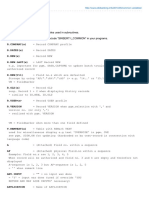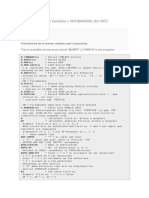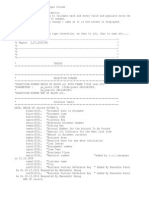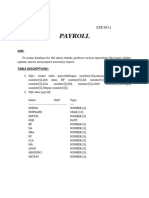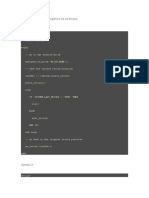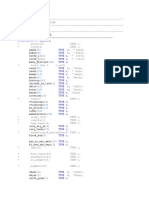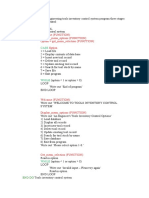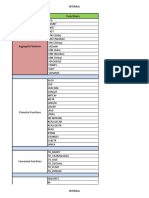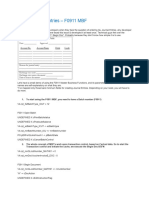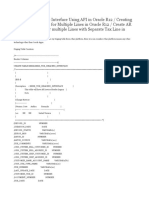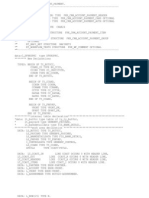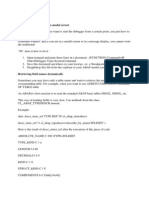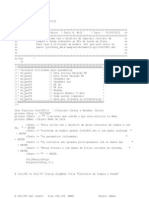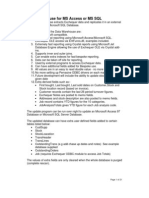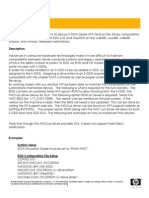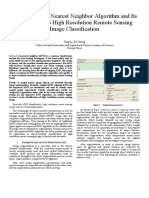0% found this document useful (0 votes)
10 views6 pagesScan
The document describes the Scan component, which generates a cumulative summary for input records, detailing its properties such as sorted-input requirements, maximum memory usage, key methods for grouping records, and logging options. It includes examples demonstrating how to assign sequence numbers, use key_change and input_select functions, and apply output_select functions. The Scan component can process parallel files without serialization, treating each partition as a separate file.
Uploaded by
divyadara63Copyright
© © All Rights Reserved
We take content rights seriously. If you suspect this is your content, claim it here.
Available Formats
Download as DOC, PDF, TXT or read online on Scribd
0% found this document useful (0 votes)
10 views6 pagesScan
The document describes the Scan component, which generates a cumulative summary for input records, detailing its properties such as sorted-input requirements, maximum memory usage, key methods for grouping records, and logging options. It includes examples demonstrating how to assign sequence numbers, use key_change and input_select functions, and apply output_select functions. The Scan component can process parallel files without serialization, treating each partition as a separate file.
Uploaded by
divyadara63Copyright
© © All Rights Reserved
We take content rights seriously. If you suspect this is your content, claim it here.
Available Formats
Download as DOC, PDF, TXT or read online on Scribd
/ 6





